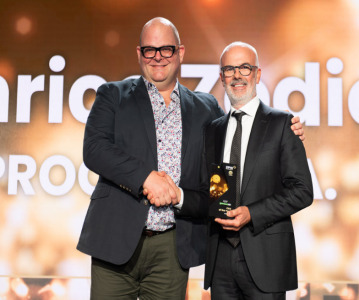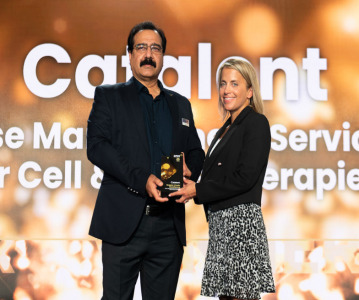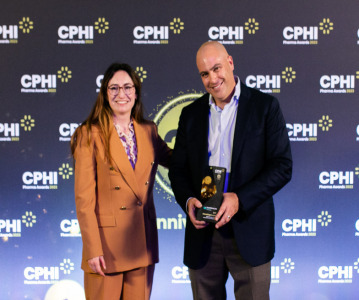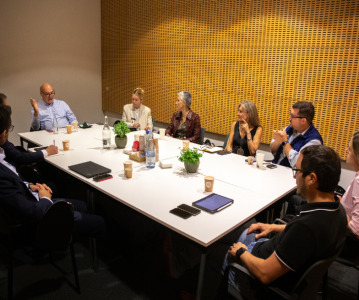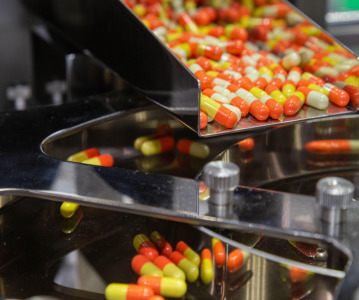CPHI Barcelona Speaker Interview – What the US FDA’s Quality Management Maturity Means for the Pharma Industry
.png)
At CPHI Barcelona (24–26 October, 2023), we spoke to Sireesha Yadlapalli, CEO of Pharmatech Associates, who gave a presentation on the implications of the US FDA’s Quality Management Maturity (QMM) Initiative, and spoke on the panel of the future of the generics drug market. She discusses why quality management should be a top concern for the industry, what the future generics market will look like, and how events like CPHI offers a platform for these discussions.
Your presentation “Implications of FDA’s QMM Initiative for API Manufacturers, Drug Sponsors, and Drug Manufacturers” focuses on the QMM rating program for domestic and foreign pharmaceutical manufacturers. Why is this a particularly important point of discussion right now?
Over the last few years, there’s been significant focus on regulatory oversight and regulatory actions. Issues such as product recalls and drug shortages have all continued to point to the importance of focusing on quality. In the past decade or so, when we talk about quality issues whether in the US or outside the US, we’ve seen situations where a manufacturer has not been fully compliant with cGMPs; inspectors have observations, but they are unable to stop production of the product. If that manufacturer stops producing that drug, there could be a massive shortage in the industry because there might only be one or two suppliers of that product. So quality is a huge issue. It also affects access and availability. What the agency is trying to address is why, after all that scrutiny, regulatory oversight, inspections, and cGMP, we still have these quality issues. Now, we cannot just address it at the backend by checking whether somebody is complying, we need to start at the front end and ask what can be proactively put in place to ensure quality. QMM is a great initiative that looks at culture approaches, fostering a mindset of continual improvement that we hope will result in fewer backend issues that require corrective actions at a huge cost for all involved.
How do events such as CPHI Barcelona support discussions on topics such as your presentation?
It is a great getting-together of all stakeholders. I think the geographical and regional representation at CPHI—running into manufacturers from every part of the world— makes it a fantastic platform to interact. In the ways we address issues of supply chain resilience in terms of availability and access, we need geographic diversification. This means that countries and places that did not supply to certain countries due to stringent regulatory markets can now do so, but they may not know how to go about it. At Pharmatech we work to support the mission of a resilient supply chain. We support manufacturers who aspire to supply to the US market and help them get the infrastructure, processes, and people ready. We call this the Roadmap to the US, and at CPHI this year, we are ready to meet and welcome manufacturers who may not be present in the US yet and are looking to figure out how to file and prepare for US FDA inspection. We will help with all those steps. CPHI is where we can connect with these manufacturers in one place.
You are also part of the panel on the future of the generics drug market. What are some points you’d like to highlight within the generics market and what it might look like in the future?
Because generics make up such a large percentage of prescription drugs, compared to innovator drugs, generic manufacturers investing in quality has a huge public health benefit due to the impact that generics have in the market. Investing in quality upfront from design to implementation and doing it in a way that takes business processes into account, quality must be at the centre of every decision. It is more than meeting some checkbox requirements and simple compliance: it is thinking about quality as the basis for doing things well. From product yields, product control, and process control, better yields are a big part of the pharmaceutical endeavour. Yields and quality go hand in hand. Thus, investing in quality becomes a competitive advantage – those who don’t consider it will be left behind. Smaller companies with just one or two products might not have the same economies of scale to invest in quality upfront in this way, so they will likely not be sustainable. As a result, there might be a reduction in small size companies.
Continuous manufacturing can be one of the ways to lower costs and be more efficient, and we’re seeing that already on the API side. While end-to-end continuous manufacturing is harder and more expensive, there are some processes that are conducive to pharmaceutical continuous manufacturing. The adoption of continuous flow reactors for APIs is being led in India, and generics will most likely follow, although slowly at first.
What has been a highlight for you at CPHI Barcelona this year?
This is my first time at CPHI Barcelona. I think the opportunity is tremendous in CPHI’s ability to connect across the industry—across product segments and across regions. The organisers did a fantastic job and pulled it off so seamlessly. Personally, it has been fantastic for me connecting old and new friends and stakeholders in the industry, and sharing how Pharmatech can add value.
Related News
-
News CPHI Pharma Awards 2023 – Sustainability winners: Schneider Electric
After another year of impressive nominations for the CPHI Pharma Awards our winners were announced at CPHI Barcelona in October 2023. In this series of interviews, we speak to the people and teams behind the award-winning projects, concepts, and techno... -
News CPHI Pharma Awards 2023 – At the Heart of Pharma winners: Merck KGaA
After another year of impressive nominations for the CPHI Pharma Awards our winners were announced at CPHI Barcelona in October 2023. In this series of interviews, we speak to the people and teams behind the award-winning projects, concepts, and techno... -
News CPHI Pharma Awards 2023 – Packaging & Machinery Winner: Gasporox
After another year of impressive nominations for the CPHI Pharma Awards our winners were announced at CPHI Barcelona in October 2023. In this series of interviews, we speak to the people and teams behind the award-winning projects, concepts, and techno... -
News CPHI Pharma Awards 2023 – CEO of the Year Winner: Enrico Zodio, PROCOS S.P.A.
After another year of impressive nominations for the CPHI Pharma Awards our winners were announced at CPHI Barcelona in October 2023. In this series of interviews, we speak to the people and teams behind the award-winning projects, concepts, technologi... -
News CPHI Pharma Awards 2023 – Supply Chain Excellence Winners: Catalent Case Management Services
After another year of impressive nominations for the CPHI Pharma Awards our winners were announced at CPHI Barcelona in October. In this series of interviews, we speak to the people and teams behind the award-winning projects, concepts, and technologie... -
News CPHI Pharma Awards 2023 – API Development and Innovation Winners: Snapdragon Chemistry, a Cambrex Company
After another year of impressive nominations for the CPHI Pharma Awards our winners were announced at CPHI Barcelona in October. In this series of interviews, we speak to the teams behind the award-winning projects, concepts, and technologies. -
News Navigating the Future: Challenges and Opportunities in Pharma Innovation and Investment – CPHI Barcelona 2023 Roundtable Report
In this comprehensive downloadable report, hear from a range of experts in finance and investment in the pharma industry on what investment trends will be shaping the future of the industry, in Catalonia, and the wider world. -
News CPHI Barcelona: Outsourcing in Manufacturing Operations
During CPHI Barcelona 2023, insightful content sessions offered attendees the chance to explore trending topics with expert speakers and panellists. Here, we summarise what the pharma industry and supply chain are talking about the most.
Position your company at the heart of the global Pharma industry with a CPHI Online membership
-
Your products and solutions visible to thousands of visitors within the largest Pharma marketplace
-
Generate high-quality, engaged leads for your business, all year round
-
Promote your business as the industry’s thought-leader by hosting your reports, brochures and videos within your profile
-
Your company’s profile boosted at all participating CPHI events
-
An easy-to-use platform with a detailed dashboard showing your leads and performance

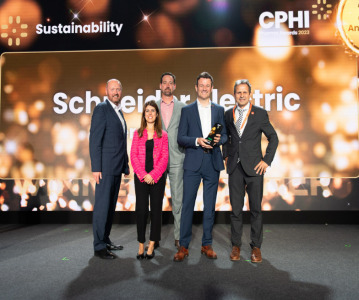
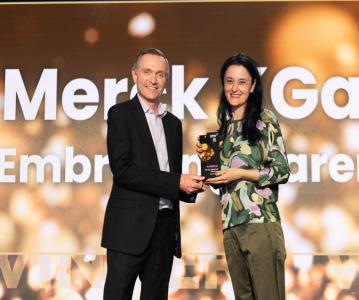
.png)
